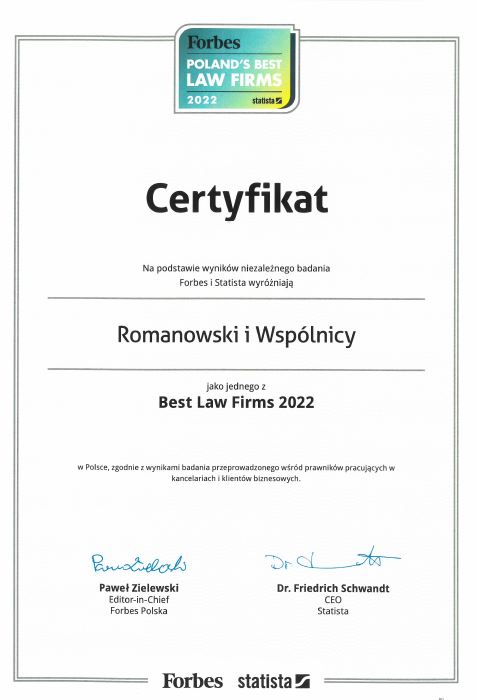The shareholder is the person who acquired the shares. Acquisition of shares by one of the spouses during the course of joint property ownership does not mean that the other spouse becomes a shareholder by operation of law, even though the shares are part of the joint property. Prof. Michal Romanowski comments in Rzeczpospolita on the legal problem that the Supreme Court will decide.
“The issue is well illustrated by the example of a closed company, which is a union of “partners” in a business, called shareholders. By forming a partnership with a married partner, the partners enter into a business ‘marriage’ relationship with each other, not with their spouses. The relationship of business “marriage” is based on a different criterion (business) than the relationship of two people vowing fidelity and conjugal love to each other until death (emotional criterion). Being a partner in business is not the same as being a spouse-partner in everyday life, and vice versa. Fortunately! Company law recognizes this by allowing, for example, the Articles of Incorporation of a joint-stock company to exclude the entry of a shareholder’s spouse into the company. In a scene from Wajda’s “Promised Land,” three friends form a partnership among themselves, not with their life partners. Internal relations in a partnership between shareholders are not only property relations, but also based on personal trust, personal relationship. Business within the partnership I must have the right to do with a friend, and not necessarily with his spouse. A partnership and marriage have in common that they are relationships of persons, but of other persons. There is no communion between the company as a union of persons and the unions of persons formed by the partners of the company with their spouses. Therefore, the cessation of marital communion for whatever reason does not result in the “automatic” entry of a spouse who was not additionally a partner in the partnership. Instead, it requires consideration in property settlements for the abolition of the community property. A different view would strike at the nature of the partnership and the security of trading. By trusting and ‘loving the business’ of a partner, I do not have to trust and love the business of his spouse.” – Michał Romanowski


